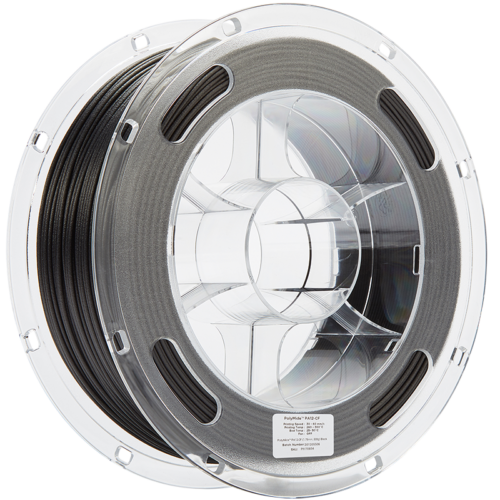
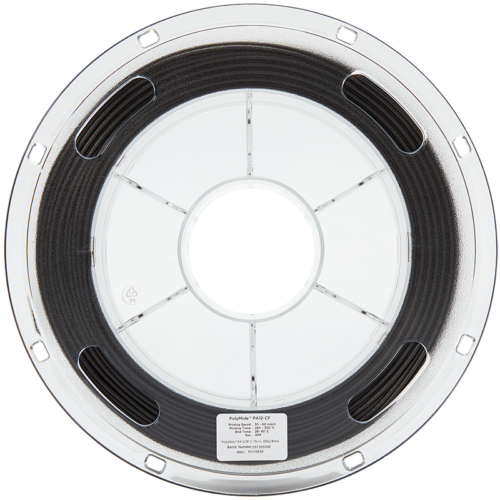
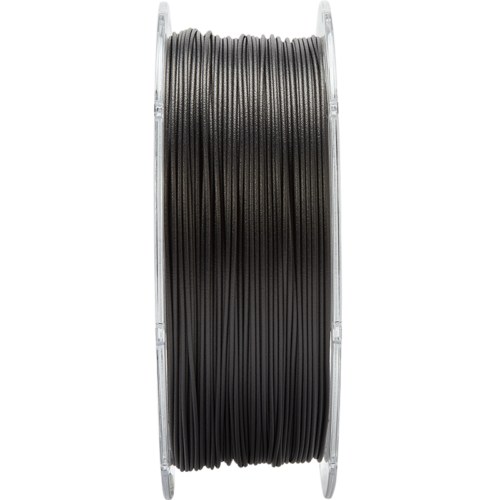
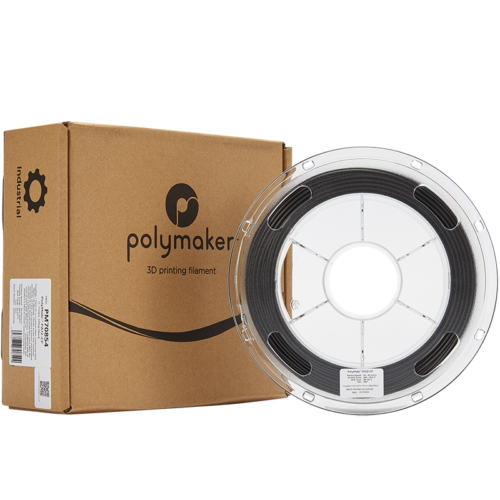
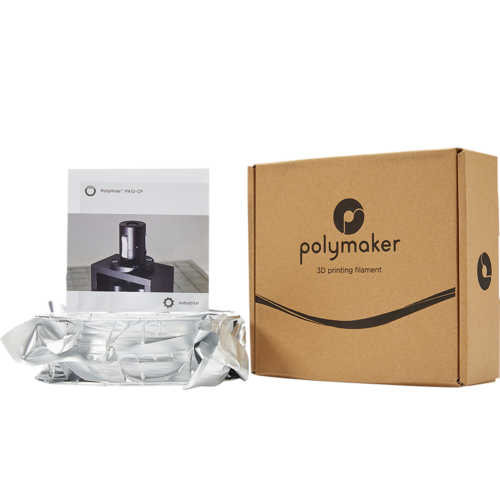
Polymaker
PolyMide PA12-CF 1.75mm
PolyMide™ PA12-CF is a carbon fiber reinforced PA12 (Nylon 12) filament. Thanks to the low moisture sensitivity of PA12, this product features outstanding mechanical and thermal properties even after the moisture conditioning process. Combined with its ease of print with Warp-Free™ technology, this product is ideal to create manufacturing tools.
WHAT IS THE DIFFERENCE BETWEEN POLYMIDE™ PA612-CF AND POLYMIDE PA6-CF?
PolyMide™ PA612-CF exhibits enhanced rigidity and strength in wet conditions compared to PolyMide PA6-CF, owing to its longer chemical chain. While both materials do absorb moisture, PA612-CF demonstrates minimal reduction in mechanical properties, resulting in superior overall performance in wet environments when compared to PA6-CF.
RECOMMENDED PRINTING CONDITIONS:
- Nozzle temperature 260 – 300 (℃)
- Build surface material - BuildTak®, Glass, Blue Tape Build surface treatment PVP Glue
- Build plate temperature - 25 - 50 (˚C)
- Cooling Fan - Turned off
- Printing speed - 30-60 (mm/s)
- Raft separation distance - 0.2 (mm)
- Retraction distance - 3 (mm)
- Retraction speed - 40 (mm/s)
- Environmental temperature - Room temperature Threshold overhang angle 60 (˚)
- Recommended support material - PolyDissolve™ S1
Based on 0.4 mm nozzle and Simplify 3D v.3.1. Printing conditions may vary with different nozzle diameters.
Note:
- PolyMide™ PA12-CF absorbs moisture slowly over the time. The estimated equilibrium water absorption is around 1.5%.
- Abrasion of the brass nozzle happens frequently when printing PolyMide™ PA12-CF. Normally, the life of a brass nozzle would be approximately 9h. A wear-resistance nozzle, such as hardened steel and ruby nozzle, is highly recommended to be used with PolyMide™ PA12-CF.
- If PolyMide™ PA12-CF is used as the support material for itself, please remove the support structure before excessive moisture absorption. Otherwise, the support structure can be permanently bonded to the model.
- After the printing process, it is recommended to anneal the model in the oven at 80°C for 6 hours.
Together, Layer by Layer!

